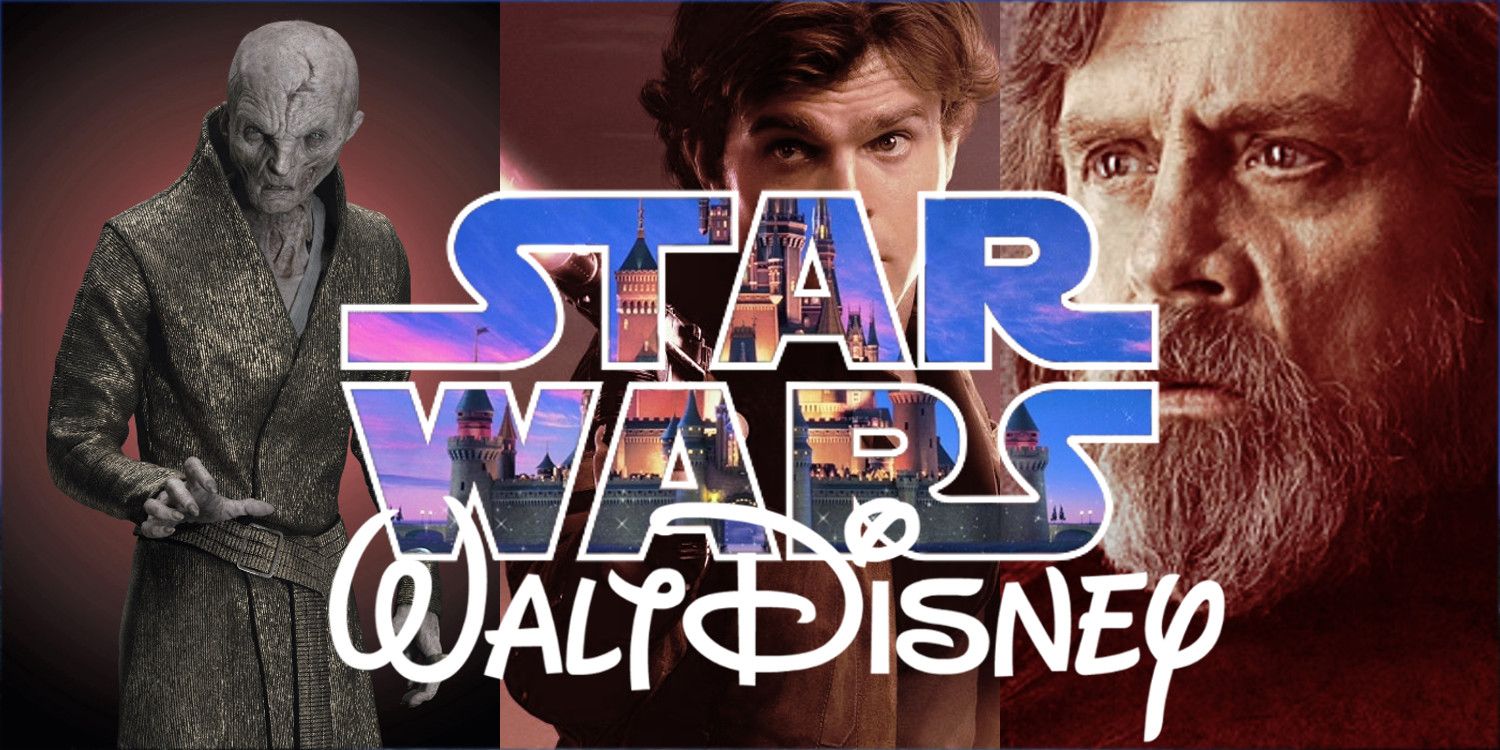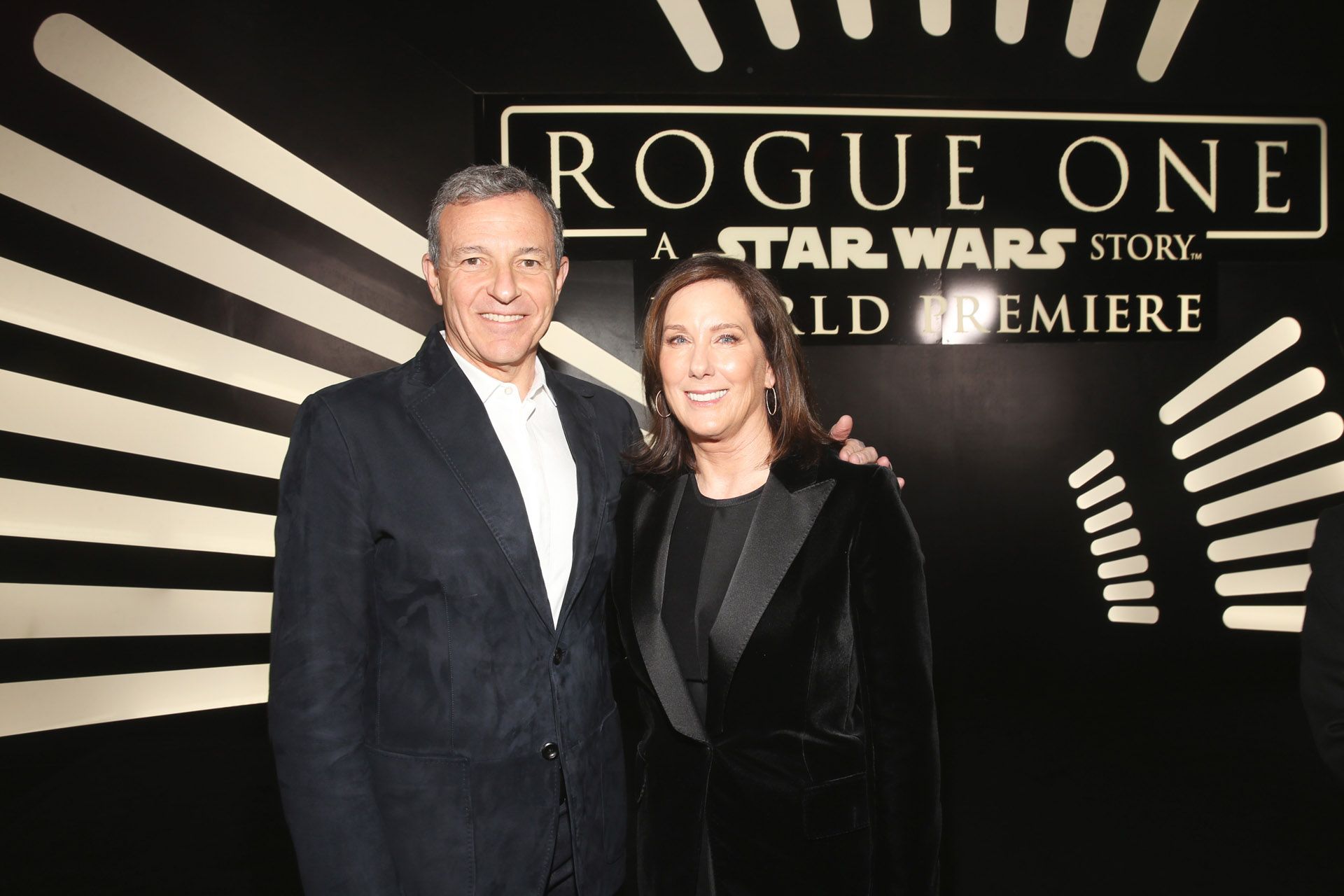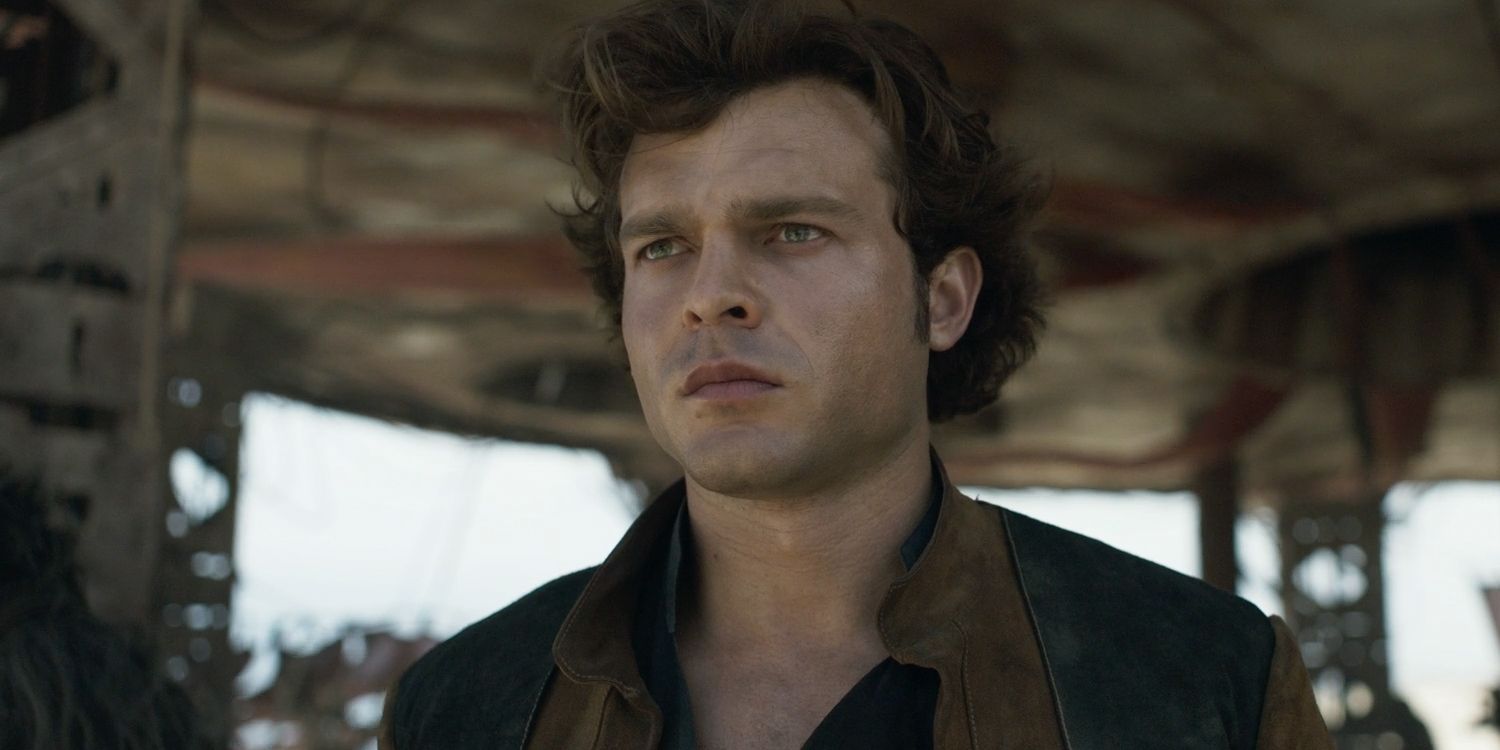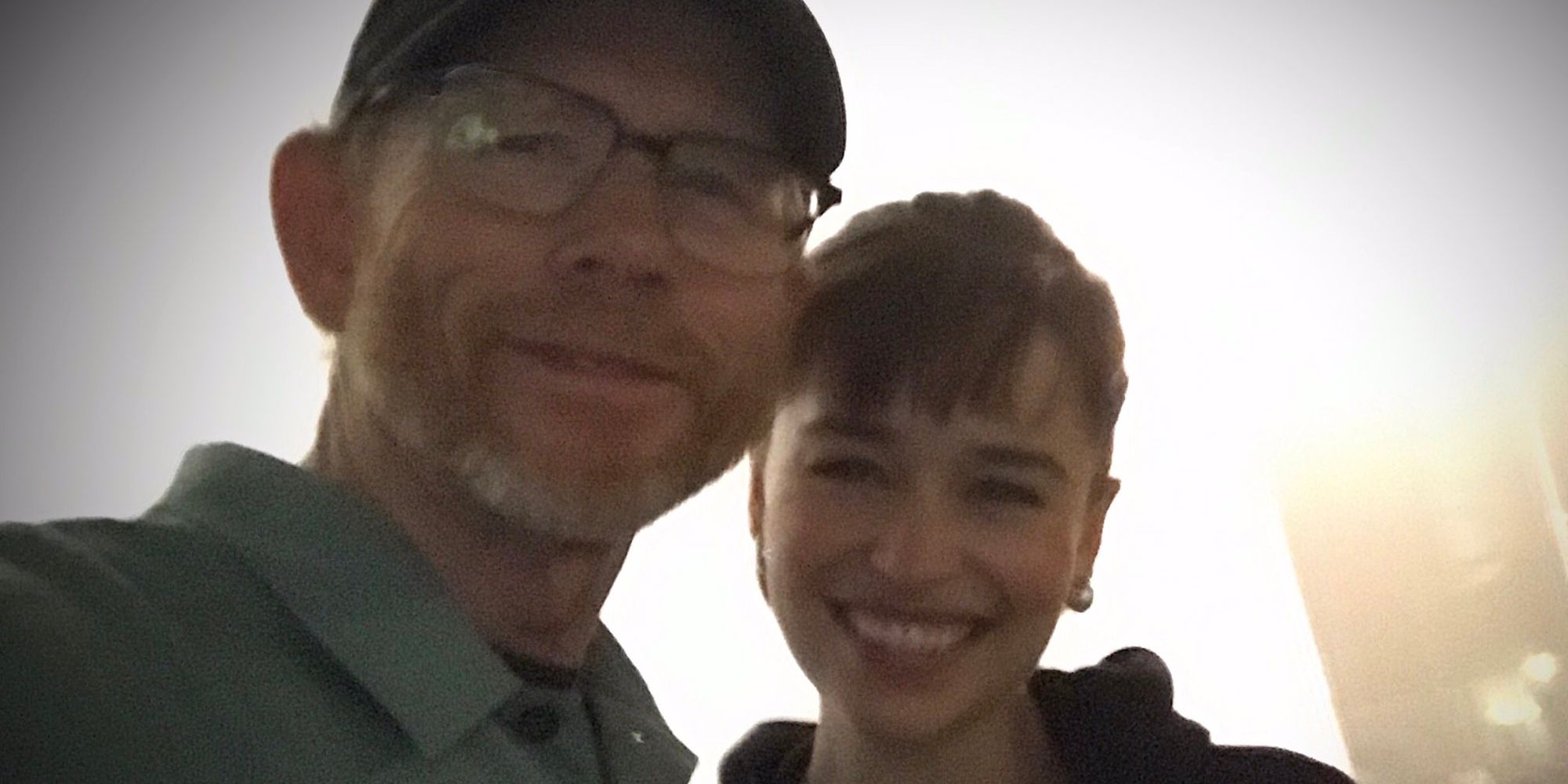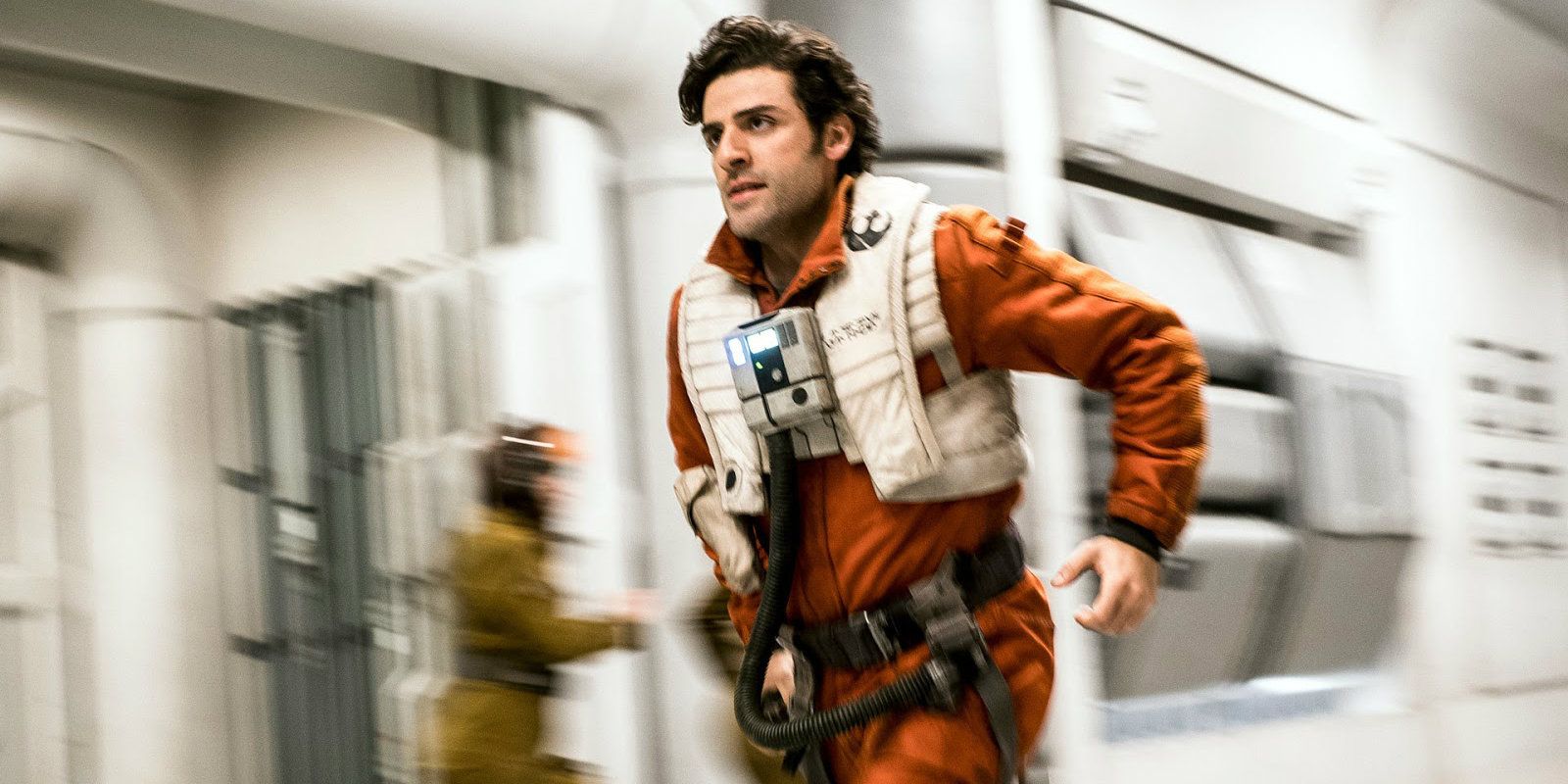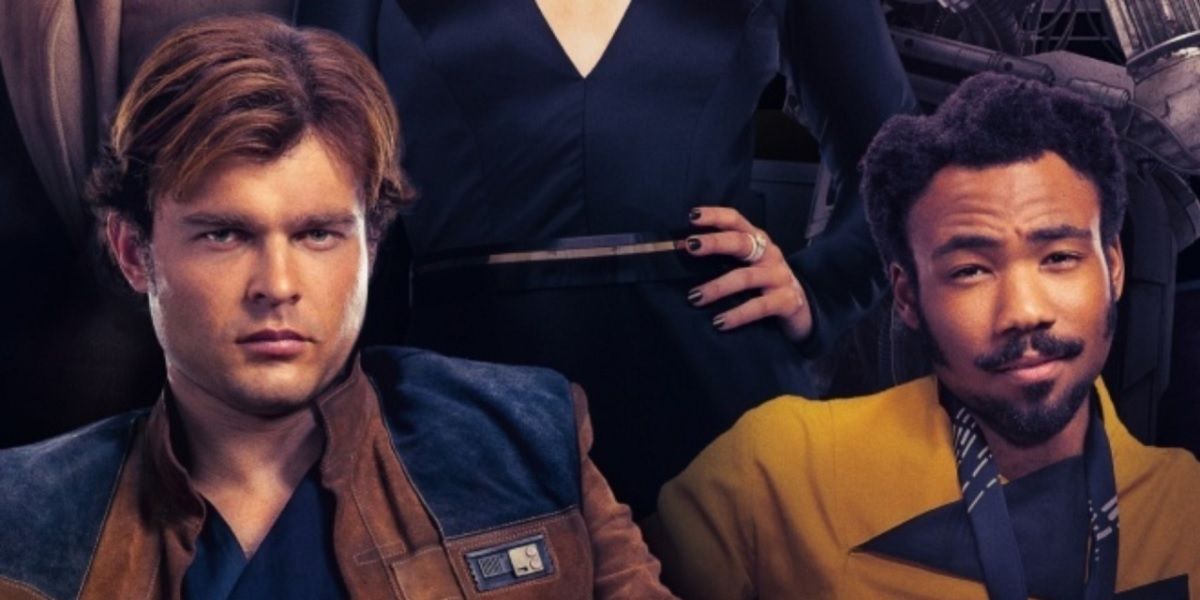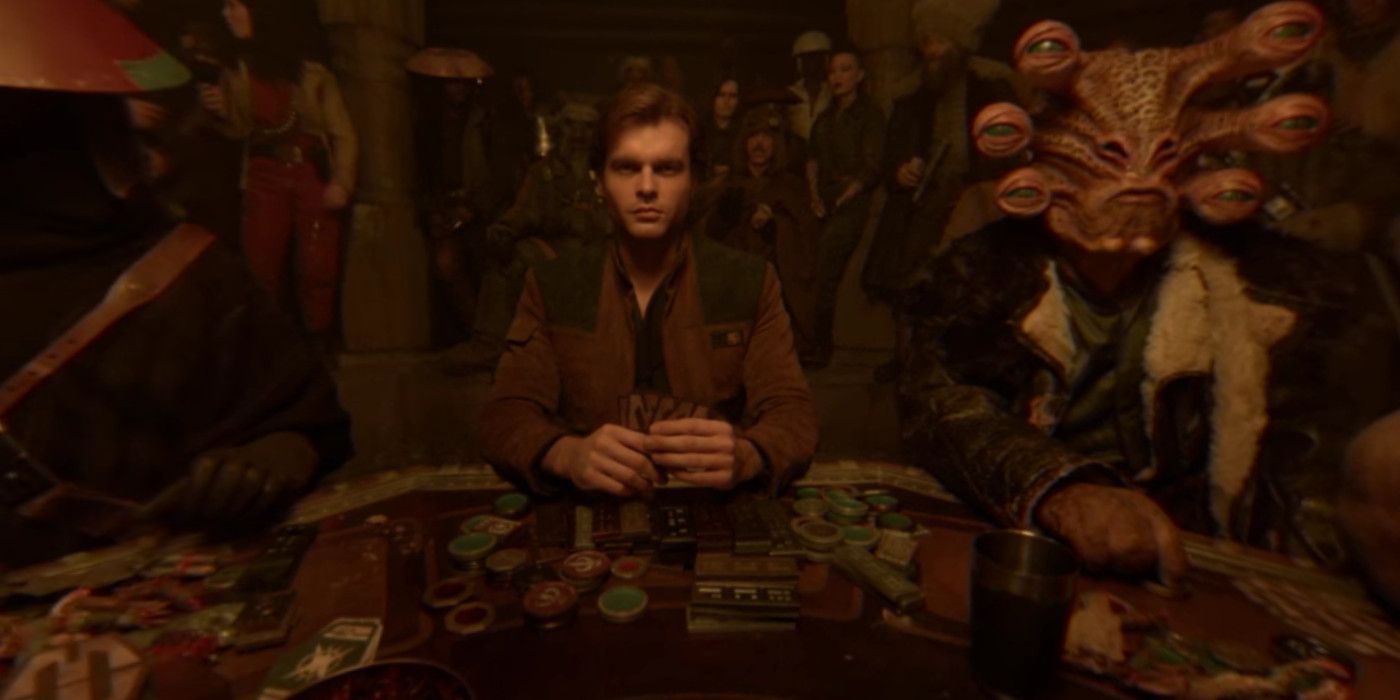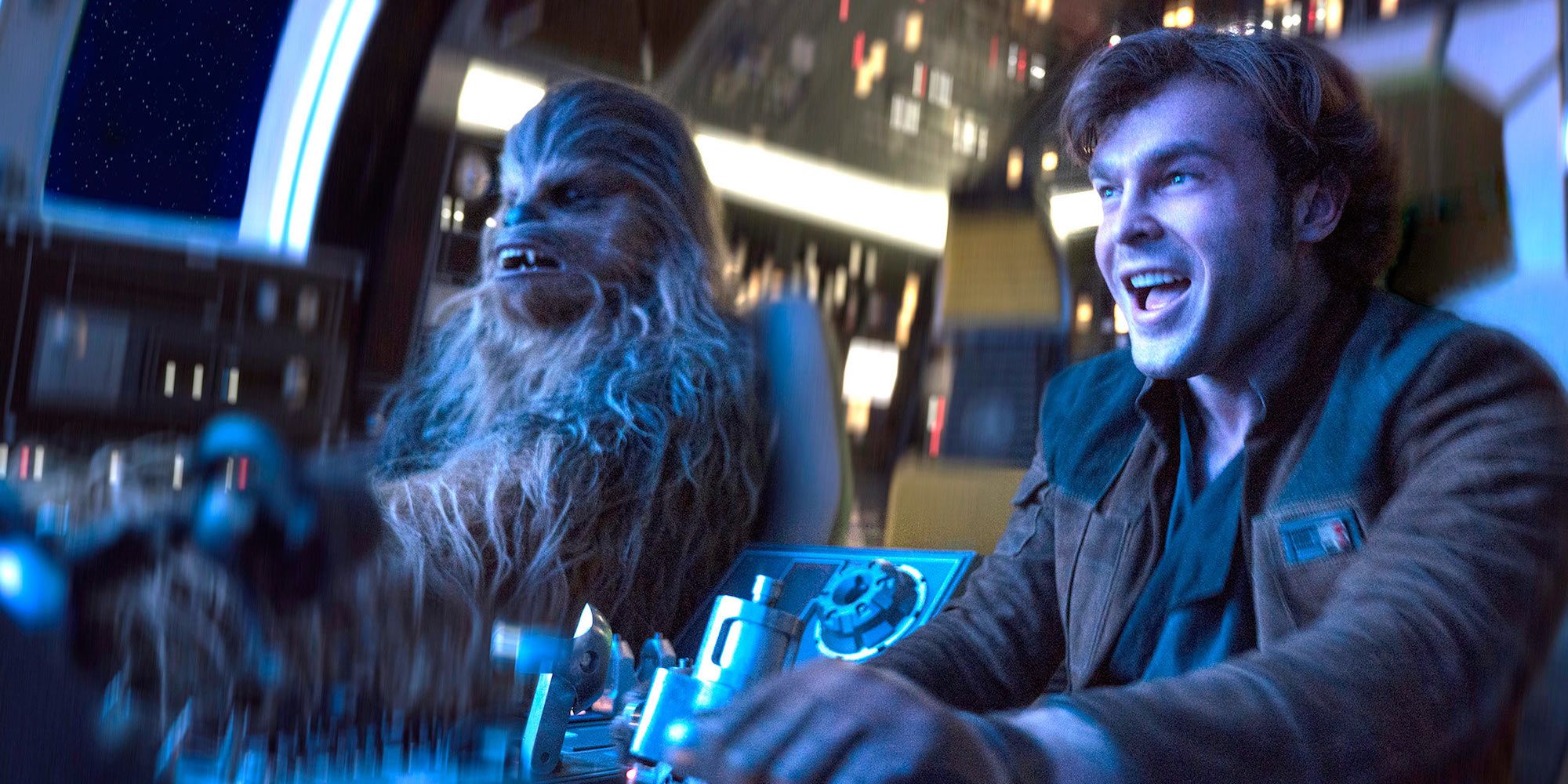Disney’s acquisition of the Star Wars franchise has yielded undeniably positive results, but with Solo’s under-performing numbers suggesting audience fatigue, we look at the missteps they’ve made with the franchise.
It is impossible to deny that The Walt Disney Company buying Lucasfilm and the Star Wars franchise was a brilliant idea. So far, the overall grosses for the films made in the franchise have far exceeded the $4.05bn Disney paid for the property. While that doesn't necessarily translate into pure profit just yet, it will eventually. Two of those additions to the ever-popular saga - The Force Awakens and The Last Jedi - are in the top 11 highest grossing films ever made, with the former being one of only three films to pass $2bn worldwide. On top of that, the franchise has never been more critically beloved, nor have its opportunities for expansion across multiple mediums been so vast. Owning Star Wars has made Disney one of the most powerful entertainment companies on the planet, and despite Solo: A Star Wars Story underperforminga at the box office, Disney's choice to buy Lucasfilm still looks like a smart one.
RELATED: Star Wars Trying To Move To Two Movies A Year Is A Mistake
That’s not to say that their mistakes should be overlooked or entirely dismissed. A company this strong and run by people as renowned as Bob Iger and Kathleen Kennedy is not above business criticisms. As famous as this franchise is, and for as long as it’s been around, it’s important to think of the current era of Star Wars as a new venture, separate from the George Lucas era. The decisions made over the past several years could only be made in this current period of Hollywood, and the mistakes made in those years reflect that. The disappointment of Solo has revealed something many of us thought impossible: Star Wars is fallible.
- This Page: What is the Sequel Plan?
- Page 2: Star Wars is No Longer Special and Has Director Issues
- Page 3: The International Box Office and Marketing Problems
- Page 4: Star Wars Films Are Expensive
What is the Sequel Plan?
Lucasfilm claims to have a sequel plan for Star Wars. As Kathleen Kennedy discussed in a 2017 interview:
"We're sitting down now, we're talking about the next ten years of Star Wars stories, and we're looking at narratively where that might go. Future stories beyond Episode IX with these new characters: Rey, Poe, Finn, BB-8. But we're also looking at working with people that are interested in coming into the Star Wars world and taking us to places that we haven't been yet."
RELATED: Solo's Box Office: Why It Was Always Going To Fail
Whatever that plan is, it doesn't seem to have been in place since the beginning of the new trilogy. George Lucas famously made up major beats of the original trilogy as he went along, but this is a different age of filmmaking and off-the-cuff decisions about drastic plot points doesn't always work anymore. As noted by Rian Johnson, there was no set plan in place when he was given the job of directing Episode VIII:
"I had figured there would be a big map on the wall with the whole story laid out, and it was not that at all. I was basically given the script for “Episode VII;” I got to watch dailies of what J. J. was doing. And it was like, where do we go from here? That was awesome."
When asked in an interview with the New York Times whether he was instructed to stick to specific story arcs, he said, "Nothing like that." Johnson discussed the level of immense creative freedom he received with the film, even as it was revealed that in the early stages of development of the new trilogy, J.J. Abrams had written drafts for Episode VIII and Episode IX, in addition to co-writing the script for The Force Awakens, yet Abrams is not credited as a screenwriter or story contribution on The Last Jedi.
RELATED: Lucasfilm Should Keep Making Star Wars Anthology Stories
Giving directors creative freedom over the franchise is a good idea, and it's worked well in the most recent phase of the MCU thanks to directors like Taika Waititi and Ryan Coogler. However, those directors worked within clearly defined parameters and a franchise plan that Star Wars didn't seem to have in place from its revival. Now that Abrams is directing Episode IX, the script has changed hands once again, moving from Colin Trevorrow and Derek Connolly to Abrams and Chris Terrio. It is unknown how much will change in terms of story or character, or if this will adhere more to Abram's original drafts than what Johnson laid out before him. That confusion is part of the problem. The issue is not helped by the now frequent changes of directors to the franchise.
Page 2: Star Wars is No Longer Special and Has Director Issues
Star Wars is No Longer Special
The original trilogy kick-started the modern blockbuster era, while the prequels premiered during the beginnings of the billion dollar Summer season, with competition like The Matrix trilogy, The Lord of the Rings trilogy and the Harry Potter franchise. By the time Disney had the rights, the expanded universe age of franchise cinema was in full swing thanks to their other major property, Marvel. It made sense for Disney and Lucasfilm to try and replicate that model. On top of the central Skywalker focused trilogy, many spin-offs were announced, starting with Rogue One and Solo, with rumored plans for movies centered on Boba Fett and Obi-Wan Kenobi.
RELATED: Why Solo's Box Office Predictions Were So Wrong
All the reasoning behind such decisions is sensible, but what it has done is ensure that Star Wars movies are no longer the long-anticipated events they once were. Once upon a time, fans had to wait years or even decades for a new Star Wars film: Now, they’re guaranteed a new one every year, with the possibility of multiple annual releases, TV shows, and much more. Marvel pulled it off with their cinematic universe, but the cultural context was far different from that of Star Wars, as were the pressures. The expansive nature of Star Wars was more rooted in its expanded universe beyond the movies, including books and video games, which were popular but didn't always reach the general audiences who saw the films. Bringing the franchise's focus outside of the Skywalker Saga and doing it with increasing frequency makes the series plentiful and common. Lucasfilm and Disney seem to have assumed that audiences would automatically care about these prequels or spin-offs, and that doesn't seem to be the case. Even the ever popular Han Solo couldn't entice fans to see a prequel. If these films start coming out two or three times a year and are focused more on side-characters whose appeal is more rooted in the hardcore fan-base, the franchise could further lose that special shine it used to possess when it was a rarer treat.
Star Wars Has a Director Problem
It has become impossible to discuss Star Wars without delving into their repeated issues with hiring and firing directors. First there was Gareth Edwards, hired to direct Rogue One but replaced in the re-shoots with Tony Gilroy, who later admitted to extensively rewriting the film. Phil Lord and Christopher Miller were fired from Solo with only a few weeks of shooting left and replaced by Ron Howard, who reportedly re-shot around three-quarters of the film (bringing the final budget to around $250m, making it one of the most expensive films ever made). Colin Trevorrow left Star Wars Episod IX before production started and The Force Awakens director J.J. Abrams took over his duties. Josh Trank departed an undisclosed spin-off movie - rumored to be a Boba Fett story - after his adaptation of Fantastic Four performed poorly with critics and audiences, with rumors of disasterous behind the scenes issues.
It is not uncommon for projects to lose directors, be it through a resignation or firing. Disney has a history with this in their animation department, including Brenda Chapman being removed from Pixar’s Brave, and Jan Pinkava being replaced on Ratatouille by Brad Bird. Such drama does not always mean bad things for a film, but regardless of what you think of the finished products of Solo and Rogue One, it’s clear that a pattern had started to form at Lucasfilm.
Lucasfilm’s original plan seems to have been similar to Marvel’s in terms of hiring talent: Bring some bright young rising stars on board and let them tinker in the sandbox of Star Wars, putting their unique stamp on the material while adhering to the wider plan. However, Rian Johnson aside, it’s become obvious that Lucasfilm would prefer a safer bet. They replaced those youthful hot-shots with reliable old hands whose robustness and familiarity with the major studio system made it easier for Lucasfilm to get the results they want. Ron Howard may not be the coolest director, but his approach is more in line with the old-school studio system Lucasfilm is more keen to replicate. The rumors that a Boba Fett film will be helmed by James Mangold (Logan) and the news that the first live-action series will be run by Jon Favreau (The Jungle Book) suggest this is the route they wish to continue taking for their long-term plan.
RELATED: Solo: A Star Wars Story Deserves Better Review Scores
This chopping and changing tactic is messy, makes Disney and Lucasfilm look flighty, and costs a lot of money. It doesn’t inspire much confidence in audiences, much less potential talents looking to sign onto the next project. It shouldn't have taken the studio this long to realize that this was the tactic they wished to use.
Page 3: The International Box Office and Marketing Problems
The International Box Office Problem
As with most major blockbusters, costs have risen and domestic audience interests have plummeted. 2017 saw the North American Summer box office fall to its lowest revenues in over 20 years. Films that were supposedly sure-fire bets with homegrown audiences barely made a dent with their domestic releases. To compensate for this problem that has affected all the major studios, distributors have become increasingly reliant on international box office grosses, with the golden goose of the globe being China. The Chinese box office can make or break a film: See how they stopped Warcraft from being a major flop, or how the gross for the 5th Transformers movie was around $400m less than its predecessor in large part due to disinterest from Chinese audiences. Disney has fared especially well in the nation, with the Marvel franchise and animated films like Zootopia breaking records overseas.
The big problem here is that Star Wars has never been a big deal in China, and increasingly, it’s become evident that the nation’s audiences have little investment in seeing more of this universe. Each new installment has grossed progressively less in China, with Solo only making $3m there in its opening day and debuting in third place at the box office. Historically, Chinese audiences have no fan connection to the franchise. The original trilogy didn't even get a theatrical release in the country. Other franchises like Marvel have fared better under similar circumstances – Disney’s films were even briefly banned in the nation for a period of time, so their extensive brand building in China is one of their more ambitious business pursuits. However, Marvel had something in the country that the Star Wars films never had: Appropriate marketing.
The Marketing Problem
While this problem is particularly relevant to Chinese publicity campaigns, it's one that's also had an impact on Solo. In China, the Star Wars name was completely removed from the film's title and marketed more as Ranger Solo. It made sense to remove all connections of the film’s prequel status given how little audiences were invested in characters like Han Solo, but it still didn’t work.
Back in North America and English-speaking audiences, Solo leaned heavily on its prequel status and connection to the wider universe of Star Wars, a tactic not dissimilar to Marvel’s marketing. What that ultimately did was conceal the true nature of the film: An old-school space Western that’s at its best when it leans away from the origin story of Han Solo. If Star Wars is to become an annual tradition or have a release model similar to Marvel, then Lucasfilm and Disney need to market the films as absolute necessities for audiences to see. General audiences may love Han Solo but not care all that much about a younger version played by someone who isn’t Harrison Ford. Much has been made about the upcoming Boba Fett film but the marketing issues surrounding that could be immense – do audiences have that much investment in the character, and what is the hook to his story?
RELATED: The Last Jedi's Novelization Teased Solo's Falcon Twist - And We Figured It Out
Solo had a similar marketing plan to the rest of the franchise in that it focused more on concept than character or story. Most of the trailers for Solo hide what the film is actually about and don't seem all that interested in Han himself. This strategy can work if there's enough investment in the material but this is a prequel with none of the original trilogy's actors, like the new trilogy, or a story people know, like Rogue One. It wasn't enough for any audience to just see the concept of a Han Solo prequel, with no hints at what the film itself was like. Audiences needed more than a shot of the Millennium Falcon to care about the film. Assuming audiences want anything and everything Star Wars related ignores why fans like the franchise in the first place.
Page 4: Star Wars Films Are Expensive
Star Wars Films Are Expensive
Blockbuster filmmaking nowadays is a costly investment. It used to be a sign of disaster when a film’s budget ballooned past $100m. Now, that number is considered surprisingly low for a major franchise release. 9-figure budgets are the norm and studios expect costs upwards of $150m on average. Films like Star Wars and the MCU are investments for Disney: They create solid foundations for expansion in other areas, be it merchandising, television, gaming, theme parks or advertising.
The obvious downside is that now films have to work even harder to break even on basic costs. Rumors swirled that the most recent Pirates of the Caribbean film had a budget that soared past $320m (official reports have it at $230m, which is still major money). Justice League’s most conservative budget estimates place it at $300m, while Solo cost $250m or so. It’s not impossible to make a profit – The Last Jedi managed it with ease and without having to use the Chinese box office as a crutch – but with margins getting slimmer, the era of Too Big to Fail blockbuster cinema makes it harder for studios to experiment or take genuine risks. Disney has the big bucks to pull something like this off, but it can’t be a repeating mistake.
NEXT: Alden Ehrenreich Wasn't Just Good As Han - He Was The Best Thing In Solo
Episode 9 is coming soon, as is a new trilogy from Rian Johnson that’s separate from the main series. Benioff and Weiss of Game of Thrones fame will have their addition to the franchise, and on top of the Fett and Obi-Wan prequels, there will be a TV series exclusive to Disney’s upcoming streaming service. Their plans are to build upon the Skywalker Saga but allow room for expansion beyond those established characters. This is a smart move but it's also really the only one they have to go with, especially now that the core three of the original trilogy has been whittled down to zero, with Chewie and the droids being the only remaining cast. Having a strict and detailed plan in place is good business for a company and franchise this big, but it allows little room for error or change if things don't go as planned. So, when you end up removing directors late in the game and have to spend tens of millions of dollars to stick to the plan, it becomes a less sturdy investment as a whole. Change is necessary for Star Wars to thrive, as is its expansion beyond its core cast. But that plan is not watertight, and even Star Wars could be fallible, or, at least as fallible as a multi-billion dollar franchise of endless influence can be.
Whatever mistakes have been made, they’re not about to let the franchise rot, and their safety net of endless cash flow allows for the occasional error on a major scale. Disney may be the only studio on the planet who can afford a $250m oopsie, but it's not something they want to get in the habit of repeating. The true problem lies in how they have taken one of the most iconic cinematic franchises and made it just another series of films. It's not just that Star Wars is no longer special: It's not the only game in town offering what it does to audiences. For the franchise to have long-term staying power in an increasingly crowded blockbuster field, Disney and Lucasfilm need to make it special again, and they need an understanding of not just what audiences want but what they themselves wish to get from this franchise.

